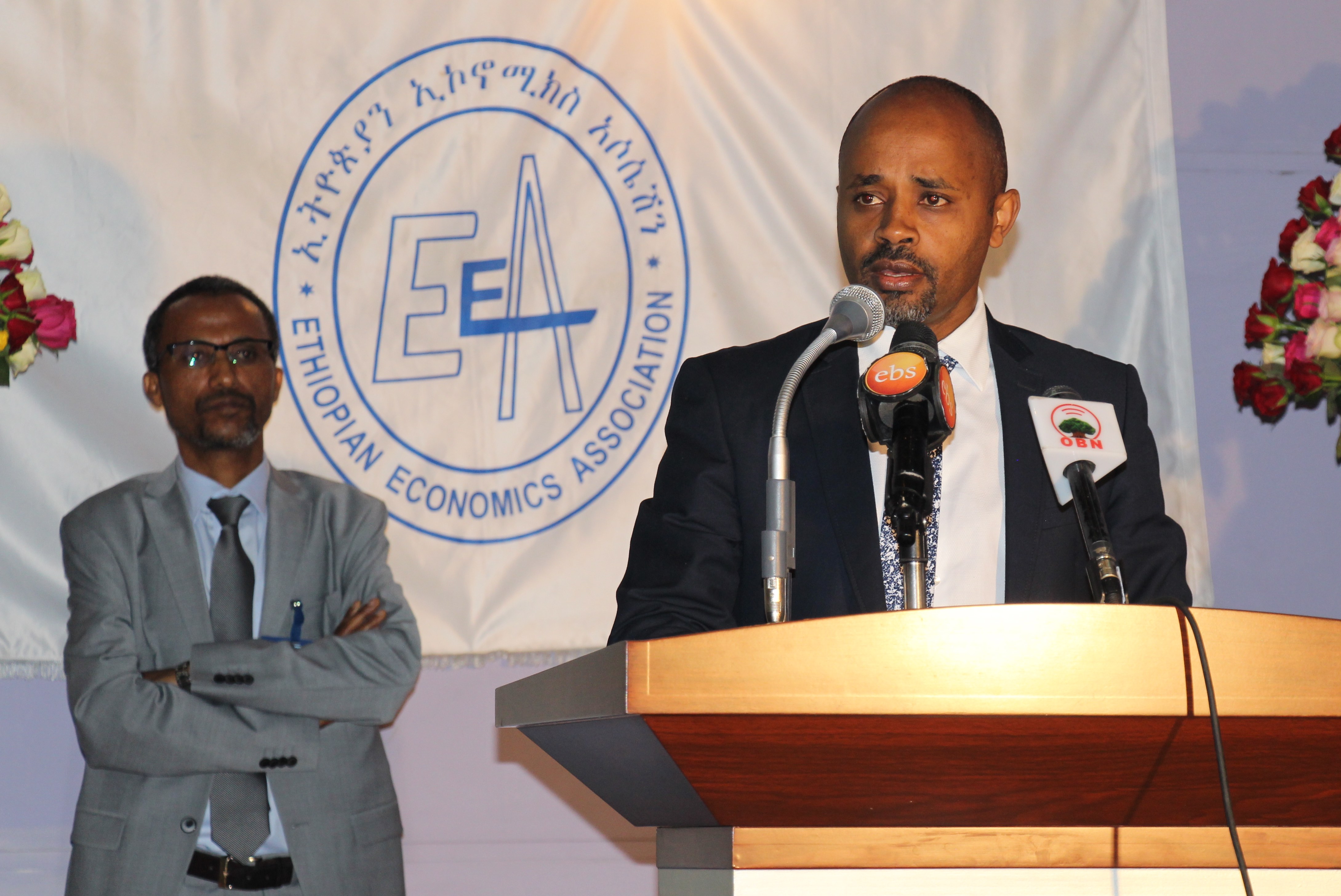Ethiopia has made substantial progress in recent decades, but is now confronting mounting economic challenges. What comes next? This was the theme of the 17th Ethiopian Economics Association (EEA) Conference held in Addis Ababa July 18-20, co-organized by IFPRI’s Ethiopia Strategy Support Program (IFPRI-ESSP).
Ethiopia faces many symptoms of an ill economy, according to EEA President Tadele Ferede, including mounting debt, a shortage of foreign exchange, a swelling unemployment rate, inflation, low productivity, and workforce skills mismatched to the economy’s needs. Policy reforms informed by research findings are required to address the situation, Ferede said.
EEA has the potential to play a more proactive role in generating evidence-based research, he said, however, various constraints prevent the organization from achieving its full potential. He also noted that less than 10% of the presenters in this year’s conference were women, and urged more female participation.
The conference is taking place in an important juncture in Ethiopia’s history, said State Minister in the Ministry of Finance Eyob Tekalign Tolina, as the country is in the middle of an economic, political, and social transformation. Despite achievements such as robust economic growth in various sectors, he said, the country faces macroeconomic imbalances.
Ethiopia is working on turning these challenges into opportunities and sparking a new era of growth, he said, and that requires a structural transformation—something that the government alone cannot achieve. The EEA has a long way to go, he said, but can contribute towards long- and short-term human resource development through its training institute.
Delivering the keynote address, Paul Dorosh, director of IFPRI’s Development Strategy and Governance Division, who spoke on macroeconomic imbalances and the case for reform in Ethiopia.
“Economy wide analysis shows that agriculture growth is likely to decelerate in the future due to growing land constraints and slowing rural labor force growth,” Dorosh said. “But the bulk of the poor will still likely be living in rural areas, with livelihood depending on agriculture and non-farm economy. As a result, agriculture and non-farm investments will likely remain most effective at reducing poverty in the country at least through the mid-2020s.”
IFPRI researchers delivered 17 presentations at the conference, focusing on issues facing crop management in Ethiopian agriculture, the dairy sector, and the challenge of job creation, among other topics.
The EEA also honored IFPRI-ESSP, which has worked with the association since 2010 organizing trainings at federal and regional level, co-organizing 10 conferences, providing professional grants for young researchers and financial and technical support for graduate students. The conference also featured the launch of the Oxford Handbook of the Ethiopian Economy.







